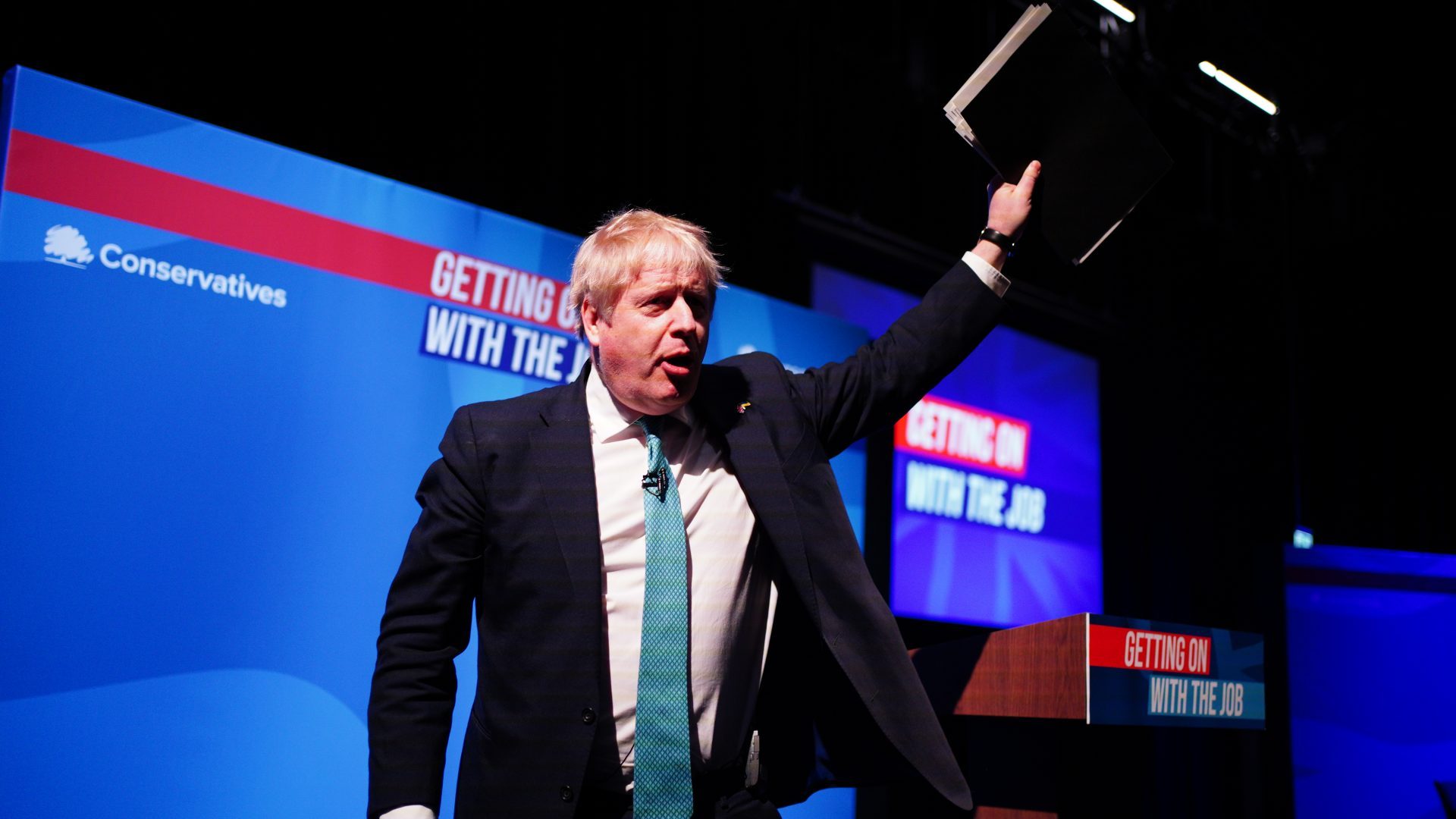It all comes back to Beau. By now, Joe Biden had hoped to be a happily retired 81-year-old paterfamilias, advising his elder son, the former attorney general of Delaware, as he ran for the presidency or even sought re-election to that office.
Instead, Beau Biden died of brain cancer in May 2015. Poleaxed by grief, his father chose not to seek the Democratic nomination in 2016; but, four years later, appalled by Donald Trump’s authoritarianism and especially by the racist violence in Charlottesville, he decided that the best way of honouring his son was to enter the subsequent race. Even then, he admitted in a tearful interview in January 2020, he felt that “Beau should be the one running for president, not me”.
So it was no surprise when, in a cacophonous press conference last Thursday evening, the president reserved particular rage for the claim in special counsel Robert Hur’s report on his allegedly unauthorised storage of classified documents that he had forgotten the year of his son’s death: “How in the hell dare he raise that?”
Hur’s findings were an unexpected depth charge in an already stormy presidential contest. Though he concluded that “no criminal charges are warranted”, he dwelt upon Biden’s forgetfulness and “diminished faculties”, recording that, in their interviews, the president had failed to recall when his term of office as vice-president began and ended. In a politically lethal characterisation, Hur described him as “a sympathetic, well-meaning, elderly man with a poor memory” – and therefore unfit to be prosecuted.
On Friday, the vice-president, Kamala Harris, claimed that the report was “clearly politically motivated”; one of many senior Democrats to respond with apoplexy. It is true that Hur, a registered Republican, was nominated by Trump in 2017 to be US attorney for the District of Maryland. But he was appointed as special counsel by Biden’s own attorney general, Merrick Garland, who noted his “distinguished career as a prosecutor”.
Hur was well within his rights to explain in detail why he had decided not to recommend prosecution – including his view that the president lacked the mental acuity to take the stand. And it was open to Garland to redact any sections of the report that he felt were unreasonable or prejudicial.
The crowing of Republicans at Biden’s embarrassment was predictable. More worrying for the president should be those on his own side who have expressed serious concern. James Carville, the architect of Bill Clinton’s victory in 1992, correctly observed that the “most damaging thing that can happen to a politician is to have an existing negative suspicion confirmed. This is why this is challenging.”
David Axelrod, one of Barack Obama’s closest advisers, made exactly the same point: “The most damaging things in politics are the things that confirm people’s pre-existing suspicions, and those are the things that travel very fast.”
This, rather than supposed partisanship, is Biden’s problem. Time and again, the public has seen him making the sort of error that Hur recorded. On February 4, he confused François Mitterrand (who died in 1996) with Emmanuel Macron. Last week, the president twice referred to Helmut Kohl, when he meant Angela Merkel. Even at his snap press conference, at which he insisted that “I know what the hell I’m doing”, he went on to refer to the president of Egypt, Abdel Fattah el-Sisi, as the “president of Mexico”.
Nor should it be forgotten that Biden positively invited this scrutiny. Challenged to respond to public concern about his health and mental acuity in February last year, he said: “Watch me”.
Unfortunately for him, voters have taken him at his word. Vigour matters disproportionately in American politics – Herbert Hoover’s notion of “rugged individualism” still looms large – and it is according to this criterion that Biden has been found wanting. Last week, an NBC News poll suggested that 76% of Americans, including 54% of Democrats, have concerns about the president’s mental and physical ability to serve four more years. In contrast, only 48% have similar anxieties about Trump’s health.
Why the double standard? Because the former president is so shinily unreal, cartoonish and feral that it’s hard to see him as a normal senior citizen. It’s like asking how old cholesterol, or bullying, or anthrax is. Age isn’t really the point. Biden looks increasingly diminished, translucent with weariness. Trump looks as if he could go on indefinitely, a one-man forever war, powered by Big Macs and KFC.
The stakes in this election could scarcely be higher; for the world, as well as America. On Saturday, Trump said – unbelievably – that he would encourage Russia to do “whatever the hell they want” to Nato member countries not paying their fair share to the alliance.
This is precisely why so many Democrats do not want Biden to run. But it is also precisely why he believes he must. He beat Trump in 2020, after all. He helped to prevent the predicted “red wave” in the mid-terms two years later.
It is not too late for him to change his mind. Lyndon Johnson did not announce his decision to withdraw from the 1968 race until March 31 of that year. But who would take his place?
The 25th Amendment enables the US cabinet, by majority, to remove a serving president “unable to discharge the powers and duties of his office”; which, in this case, would then pass automatically to Harris. But Trump would, in all probability, beat her with ease.
In his persistence, Biden is an American Ulysess: “tho’/ We are not now that strength which in old days/ Moved earth and heaven, that which we are, we are/…Made weak by time and fate, but strong in will/To strive, to seek, to find, and not to yield”.
But these are times of dire urgency, rather than of poetry. If there is an apt allusion, it should be drawn from Yeats; this contest is “no country for old men” – or at least not for this one. I say it again: the republic is in grave peril.




